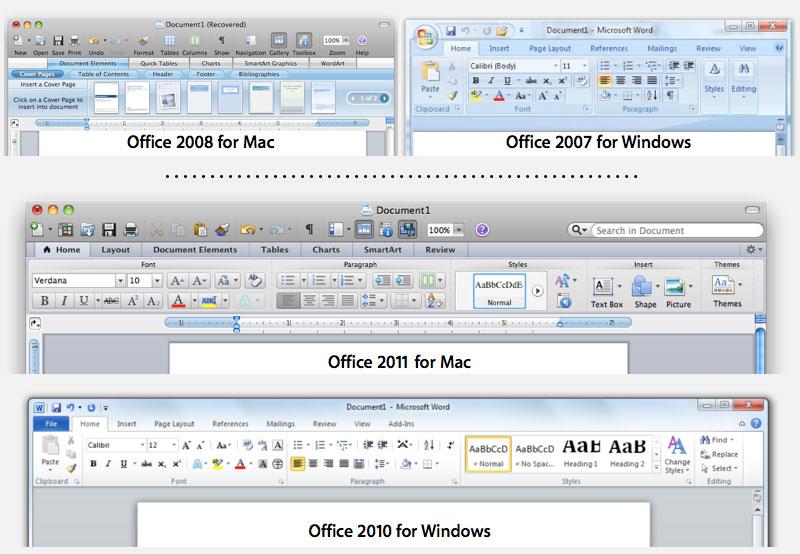Microsoft reveals Office for Mac 2011 will be 32-bit only
Microsoft's Mac OS X development team, MacBU, updated its official website this week to note that its members are at WWDC 2010 this week, taking part in Apple's developer sessions. The team revealed that their focus has been to increase compatibility between the Windows and Mac versions of Office, which means a 64-bit option on the Mac won't happen this year.
"Our work to increase compatibility means we haven’t completed the transition of moving the entire user interface over to Cocoa yet," Jake Hoelter, product unit manager with MacBU wrote. "And because Apple's frameworks require us to complete the move to Cocoa before we can build a 64-bit version, Office 2011 will be 32-bit only."
Elements of the newest Office for Mac, including the ribbon user interface, are built on Cocoa, the development layer of Mac OS X. And the all-new version of Outlook has been built from the ground up with Cocoa for the Mac.
Hoelter said that Office for Mac 2011 will still look and feel "great," Cocoa or not. He said the biggest advantage in having a 64-bit application is the larger memory capacity.
"Most users with typical or even larger-than-average document content will not notice a difference in performance," he said. "Where 64-bit can make a difference for people working with huge amounts of data, such as those creating very large Excel files with data in millions of cells, or PowerPoint presentations with thousands of high resolution images."
He also noted that the Windows Office Engineering team has recommended that most people buying Office for Windows stick with the 32-bit version, even though it will also be available in 64-bit. The team said the 32-bit version in Windows offers the best compatibility.
Hoelter said the MacBU team supports Cocoa because it makes it easier for them to give applications the look and feel that Mac users want. In the future, he said, the team plans to go further with Cocoa.
"Meanwhile," he said, "I think customers are going to be really happy with the improvements in compatibility, collaboration, and user experience we're bringing in Office 2011."
The new version of Office for Mac promises greater feature parity with its Windows version, including improved support for Exchange and reincorporated support for Visual Basic for Applications. It also has a similar look to Office 2010 for Windows, adding the ribbon interface found in previous Windows versions.
Office for Mac 2011 will also add co-authoring tools to allow multiple users the ability to work on files from Word, PowerPoint or Excel from different locations. Microsoft Web Apps can also be accessed, allowing users to share Office documents from any machine with an Internet connection. And Microsoft has said the new ribbon interface gives "the best of both worlds" by using the classic Mac menu and Standard Toolbar.
 Slash Lane
Slash Lane














 Amber Neely
Amber Neely
 Thomas Sibilly
Thomas Sibilly
 AppleInsider Staff
AppleInsider Staff
 William Gallagher
William Gallagher
 Malcolm Owen
Malcolm Owen
 Christine McKee
Christine McKee










114 Comments
Fail.
Give me a yell in a couple years when you finally get your act together, maybe I'll consider it then.
... it hasn't completely transitioned to Cocoa for Mac OS X.
Take your time, Microsoft. I mean it's only been about eight years since Apple started strongly suggesting all developers move their apps to Cocoa and xCode.
Office is the most bloated, resource-eating, slow-as-hell collection of programs on the platform. Seriously, HD After Effects renders are less taxing on my Mac Pro than launching Microsoft Entourage.
Do most users need 64 bit office? No.
Does it run in 64-bit snow leopard? Yes.
Will this stop most users from updating? Not likely.
Is this good for iWork? Yes.
Is it a fail? Not really.
Why is MS's MacBU at WWDC? There are no Mac tracks at WWDC. It's all iOS.
Why do the Windows and Mac versions look so different? It seems completely pointless to have one application that runs of two different platforms and not have identical visual functionality layout. They may have different colors and such but it seems ridiculous to have different layouts and different naming conventions.